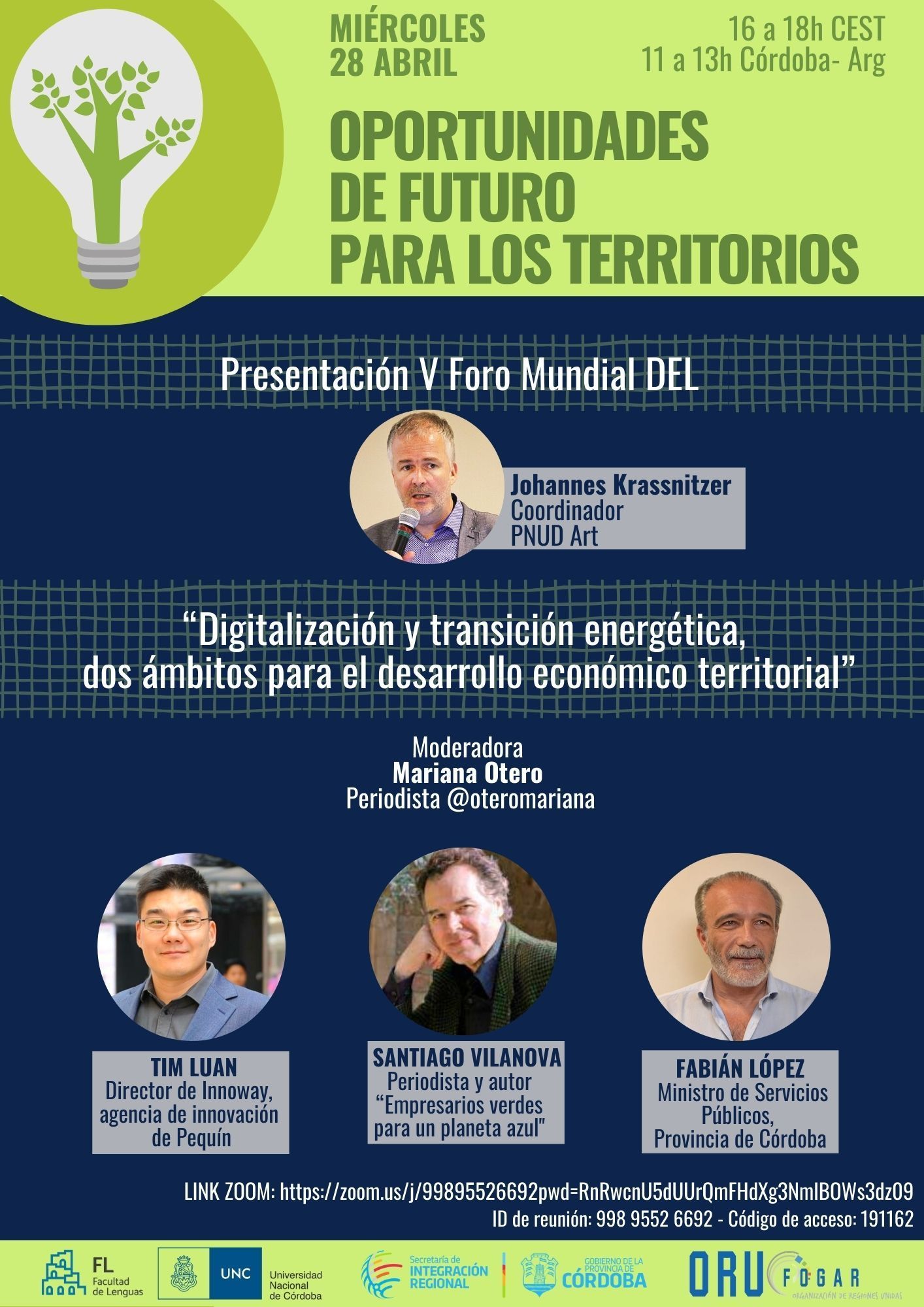With the important participation of the Government of the Province of Córdoba, which acted as host, but also with the presence of members of ORU Fogar from all over the world, a preparatory session was held on April 28 within the framework of the organization’s Bureau. of the V World Forum on Local Economic Development which, basically, dealt with the energy transition. This session was titled “Digitalization and energy transition, two areas for territorial economic development.”
The person who spoke about the possibilities of creating jobs in the digital field was Tim Luan, director of Innoway. The director of the Beijing innovation agency explained very clearly that, if today, in the Beijing area, there is a permanent appearance of unicorns ( emerging and technological companies with a valuation of more than 1 billion dollars) it is due to a political decision. of the 19th Congress of the Communist Party of China, which opted for digitalization. Tim Luan explained that, despite this centralized decision, digitalization has not only reached urban areas. In rural areas, he explained, with very active government cooperation, the opportunities and advantages of all digital platforms are being taken advantage of, so that commerce and agriculture are creating a new model in the territory. “Influencers,” he explained, “are also appearing in the Chinese rural world.”
Santiago Vilanova, the journalist and author of “Green Entrepreneurs for a Blue Planet,” began by explaining that regions are going to be key in the fight against climate change and the preservation of ecosystems because “by being closer to the environment, they will be able to have a “more accurate diagnosis of the carrying capacity of its territory.” He defended an energy transition that allows the principle of subsidiarity to be applied by promoting self-consumption, savings and efficiency, taking advantage of digital technology and increasingly economical access to the sun’s energy. “We are – he stated – in a great moment for the regions to begin an escalation in favor of the creation of small and medium-sized wind and solar parks, as well as solar installations on the roofs of towns and cities managed by neighborhood associations, municipalities or consumer cooperatives.” He ended his speech by advocating for the progressive defossilization of the economy because – he said –: “There is no vaccine against climate change.”
The Minister of Public Services of the Province of Córdoba, Fabián López, showed the work of the province of Córdoba as an example of Energy Transition. “We have been the first subnational government in Latin America,” he said, “to support the 2030 Agenda and the SDGs.” He recounted different experiences that have already made it possible to reduce greenhouse gases, both in the agricultural and industrial fields, while at the same time betting on renewable energies. Córdoba, the minister explained, has not only promoted solar and wind parks or taken advantage of hydraulic energy; It has also made a bet in favor of biofuels. With the possibility of having extensive crops of corn or soybeans, the province has bioethanol, biodiesel and biomethane in a desire to strengthen the unique economy.
After a debate in which members of regional governments from Argentina, Spain, Ecuador, Ivory Coast and Peru participated, the general secretary of ORU Fogar, Carles Llorens, closed the event. He recalled that just before the pandemic, and especially in Latin America, there were great revolts. In that crisis, the lack of expectations of many people was revealed, the anguish of many young people at not having a job or having precarious jobs. This situation has been aggravated by the pandemic, but, “a session like this,” said Llorens, “has shown us that there are employment opportunities for an entire generation, in the digital field or the energy transition.” And he concluded: “We are going to go to the Forum with this message of optimism.”


